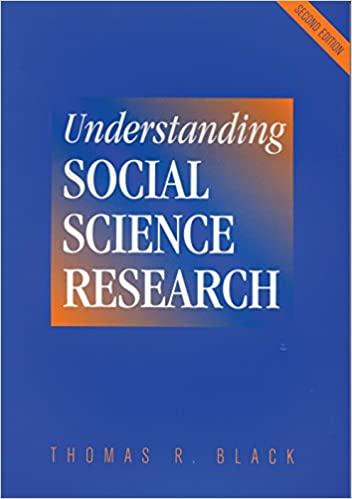Question
Case Coordination Activity Case Scenario 2: Vicky is in her mid-fifties and is divorced from a grown-up family. Much to her delight, they are now
Case Coordination Activity
Case Scenario 2:
Vicky is in her mid-fifties and is divorced from a grown-up family. Much to her delight, they are now providing her with much-longed-for grandchildren. While she has friends and some family around her with whom she has regular contact, Vicky lives independently. Her interests include gardening, theatre, literature - both reading and writing- and her pets and faith.
Vicky has a diagnosis of paranoid schizophrenia and has spent a lot of time in the Royal Edinburgh Hospital over the years due to prolonged periods of poor mental health. She had to give up work a number of years ago because of this. Vicky has been receiving daily support for about three years. This support includes: assisting Vicky with practical tasks; offering emotional support; and helping her to find ways to manage her mental health and general well-being.
One of the things Vicky receives support is doing her weekly shopping. Crowded places heighten her paranoia, making her think that people are talking about her. You arrive at the house expecting Vicky to be ready to go, but instead, she is pacing up and down, looking really distressed. When you ask what is wrong, she tells you there's no point in going shopping. When you ask why not, she tells you she won't need it, as the voices are reminding her what a bad person she is and that she doesn't deserve to live anymore. You then notice that she has emptied all her medication into a pile on the coffee table.
You know that Vicky has obeyed her voices in the past, taking potentially fatal overdoses. When well, Vicky is very trusting relationships with all those involved in her support, especially you, but she finds it difficult to trust anyone when she is unwell. She has resolved not to go to the hospital ever again.
Determine the following for your scenario:
- Are there any potential diagnoses? What? WHY?
- Explain the scope of the problem. (WHO and HOW are they impacted?)
- What are the symptoms related to the Diagnosis? Are there other issues/symptoms that are NOT related to the diagnosis?
- What Treatment approach would you use? BE SPECIFIC in terms of theories and techniques. Why did you pick those (evidence-based)?
- What are possible alternative methods for dealing with the client's Diagnosis? (other than what you've recommended)
- What adjunct services may be needed? (be specific in terms of agencies and resources)
Step by Step Solution
There are 3 Steps involved in it
Step: 1

Get Instant Access to Expert-Tailored Solutions
See step-by-step solutions with expert insights and AI powered tools for academic success
Step: 2

Step: 3

Ace Your Homework with AI
Get the answers you need in no time with our AI-driven, step-by-step assistance
Get Started


